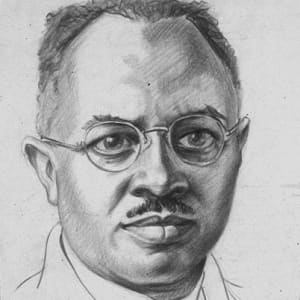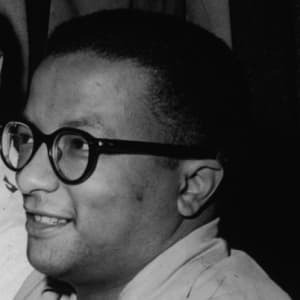
E. Franklin Frazier
Sociologist E. Franklin Frazier blazed a trail in the 1940s and ’50s for African-American academics who studied black culture.
Synopsis
Born in 1894 in Baltimore, Maryland, African-American sociologist E. Franklin Frazier studied at Howard University and the New York School of Social Work before teaching sociology at Morehouse College and Fiske University. His sometimes controversial area of interest was the effect of racial tension on black life. His writings include Negro Youth at the Crossways (1940) and The Negro Family in the United States (1939). Frazier died in Washington, D.C., in 1962.
Early Life and Career
Born on September 24, 1894, in Baltimore, Maryland, Edward Franklin Frazier was a leading African American sociologist in the 20th Century. He was one of five children born to working-class parents and grew up attending racially segregated schools. Upon finishing high school, he received a scholarship to Howard University, in Washington, D.C., from which he eventually earned his bachelor's degree in 1916.
For the next several years, E. Franklin Frazier worked as a teacher. He taught a number of subjects at various schools, including math at the Tuskegee Institute for a year. Seeking to continue his own education, Frazier went to Clark University, once again on a scholarship, and earned a master's degree in sociology in 1920. Seven years later, while employed as a sociology instructor at Morehouse College in Atlanta Georgia, he published his first major work in his field, the essay "The Pathology of Race and Prejudice." In it, Frazier argued that racism was a form of insanity, a thesis that created a great deal of controversy and which forced him to resign his post at the college.
Prominent Sociologist
Frazier continued to teach and publish, however, and received a fellowship at the University of Chicago, completing his PhD in 1931 and publishing his thesis, The Negro Family in Chicago, in 1932. The work, which was based on his research in that city, is considered by many to be a groundbreaking text in the field of sociology. For his next book, 1934's Traditions and Patterns of Negro Family Life, Frazier widened the scope of his subject matter. Around this time, he also joined the faculty of Howard University, and eventually headed up the institution's sociology department.
Throughout his career, E. Franklin Frazier continued to conduct research in the field. In 1935 and 1936, he was brought in by New York City Mayor Fiorello La Guardia to study the social and economic conditions of Harlem, and in 1939, published one of his best-known works, The Negro Family in the United States. This book provided a comprehensive look at African American family life from the days of slavery to modern times. It was one of the first studies on African Americans by an African American. Soon after its publication, Frazier traveled to Brazil and the West Indies on a Guggenheim fellowship, examining and writing about the plight of blacks throughout the world.
Frazier is also remembered for the 1949 work The Negro in the United States and the 1957 book Black Bourgeoisie, which was about the African American middle class. Black Bourgeoisie proved to be his last major work. He died in Washington, D.C., on May 17, 1962, at the age of 66.



